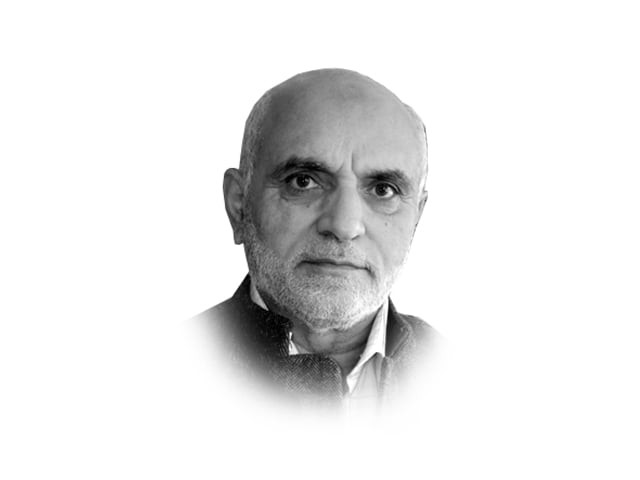New Delhi’s lies on the Kashmir dispute
India successfully projected the fallacy that those who are pro self-determination live only in the Valley.

During the past five months, 110 students and youth have been killed by Indian troops and the state police and hundreds others have been injured in firing. The United Nations Security Council has passed as many as 16 resolutions pledging the right to the people of the state to determine their future. The group of three interlocutors is fully supported by Indian Prime Minister Dr Manmohan Singh, who, on record, has stated that they have the freedom to meet any person. Indian Home Minister P Chidambaram has said the same thing, adding that the group is free to talk to militant leaders.
The National Democratic Alliance government, led by the Bharatiya Janata Party during its tenure in office had, in 2000, established a Kashmir committee under top lawyer Ram Jethmalani. If a recent interview by Mr Jethmalani in the Times of India is to be believed, the committee had a mandate to negotiate a resolution of the dispute with the Hurriyat Conference led by Mirwaiz Umar Farooq. This initiative failed after only a few rounds of talks because New Delhi dragged its feet.
Instead of finding an amicable solution to the dispute that continues to be a nuclear flashpoint between India and Pakistan, these groups of interlocutors aimed at changing the political narrative of Kashmir or creating alternative discourses — and this only added to the confusion.
It will be too early to say what findings and recommendations the new team headed by Dileep Padgaonkar will submit to the government in Delhi. But, so far, the team seems to be guided by the common New Delhi discourse and that says that support for the demand for right to self-determination is confined to the overwhelmingly Muslim-dominated Kashmir valley. This view holds that there is disagreement between people of different religious and ethnic groups in the state on the issue of self-determination. These conjured discourses are being used to silence international voices asking for resolution of the dispute. New Delhi has succeeded in marketing this discourse and it has also found takers at the international level. The facts are that Ladakh, which comprises of Leh and Kargil districts, is 45 per cent Buddhist and 55 per cent Muslim. As for Jammu, only two-and-a-half districts (and these were the most affected during Partition) are Hindu-dominated and all other districts, such as Doda, Bhaderwah, Kishtiwar, Poonch and Rajouri, are predominantly Muslim.
The truth is that the political aspirations of the majority of people in these hilly areas of Jammu and Kargil are in sync with the aspirations of the majority voice in Kashmir. But all this is lost sight of and ignored at the international level because India has been able to successfully project the fallacy that those who are pro self-determination live only in the Valley. This needs to be set right — recommendations for peace in the region have to be based on historic and current ground realities.
Published in The Express Tribune, November 10th, 2010.














COMMENTS
Comments are moderated and generally will be posted if they are on-topic and not abusive.
For more information, please see our Comments FAQ